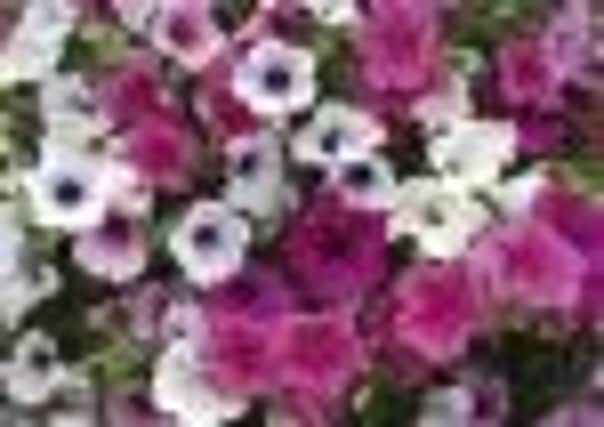Head start on summer


Because canny gardeners with a greenhouse or conservatory have realised that buying almost full-grown plants in early summer ready to plant out in patio pots, hanging-baskets and garden borders, is not always cheap, the growing trend nowadays is to buy seedlings or plug plants early in the new year and to grow them on until they are ready.
In this way, the gardener has a wider choice of colours and varieties available and should be pretty confident that they will thrive.
Advertisement
Hide AdAdvertisement
Hide AdMost garden centres and big stores (B&Q etc) will have seedlings and plantlets on sale in February and March, or you can order them from a catalogue or the internet to get an even wider selection, particularly the likes of geraniums, begonias, impatiens and petunias.
If you shop around, it’s possible to pick up 150 small but perfectly formed plants for less than a tenner.
Seedlings will come in pots containing recently germinated plants that need pricking out immediately into trays of compost or small, individual pots, so they have extra room in which to develop a good root system and stronger stems and leaves.
These little miracles deserve a good compost which is free-draining and contains slow-release plant foods that gradually feed them over several months.
Advertisement
Hide AdAdvertisement
Hide AdPlug plants are individual seedlings or rooted cuttings that have been grown for a short time in tiny cells of top-quality compost and just need more room and vital nutrients for roots and stems to grow into large plants ready to flower in pots and hanging-baskets.
So, once again, it pays to buy a quality compost to keep them happy. Pot them on regularly as they grow; come the beginning of June, they should be desperate to get outdoors to show just what they can do.
Never skimp on compost – cheap doesn’t always equate with good. Buy the best you can for the job. You wouldn’t eat muck; so don’t expect your plants to.